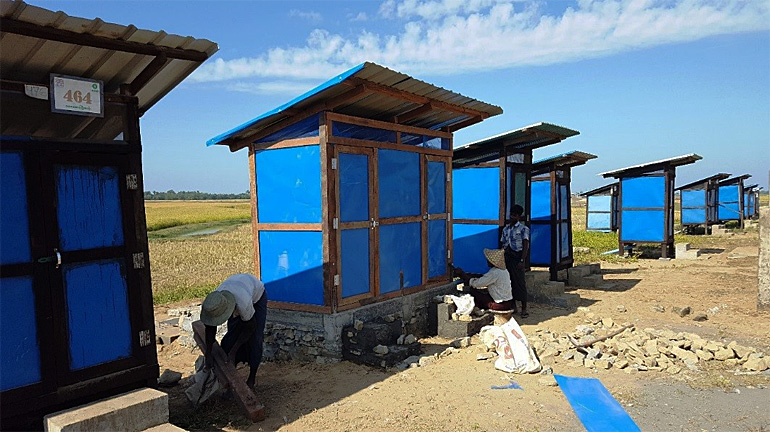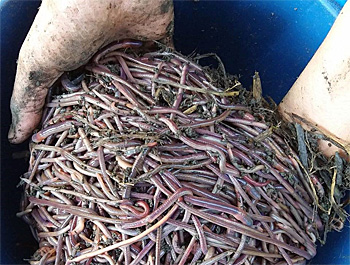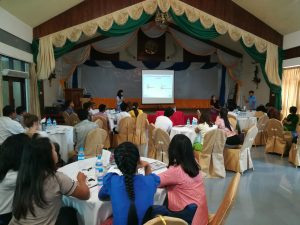Oxfam and IHE Delft develop a Tiger Worm Toilet for refugee camps in Myanmar
 Oxfam and IHE Delft are developing the Tiger Worm Toilet (TWT) in Rakhine State, Myanmar at communal level to serve up to 20 people in refugee camps. One of the biggest challenges in refugee camps is sanitation and the management of human faeces. The worms convert the human waste into a dry and easier to handle dry worm waste (vermicimopost). TheTWT-concept has already proven to be successful at household level.
Oxfam and IHE Delft are developing the Tiger Worm Toilet (TWT) in Rakhine State, Myanmar at communal level to serve up to 20 people in refugee camps. One of the biggest challenges in refugee camps is sanitation and the management of human faeces. The worms convert the human waste into a dry and easier to handle dry worm waste (vermicimopost). TheTWT-concept has already proven to be successful at household level.
A technical dissemination TWT-workshop was held by Oxfam and IHE Delft in Rakhine State, Myanmar, on 17 October,
 Tiger worms that convert human faeces into a dry and less voluminous compost so pit latrines have to be empty less frequent.
Tiger worms that convert human faeces into a dry and less voluminous compost so pit latrines have to be empty less frequent.
Increasing replication
At the workshop the technical manual for the Tiger Worm Toilet was presented by its creator and designer, Christian Snoad.
The manual is a key outcome of the project, providing a ‘pick up and go’ pack to be used by other WASH stakeholders – thus increasing the potential of the innovation for replication and scale.
The workshop was attended by government officials, international and national WASH actors, local students from the technical college, and by several Tiger Worm Toilet users themselves.
They looked in detail at the similarities and differences between regular pit latrines and TWTs, including the worm species that can digest faeces.
 Workshop participants learning about Tiger Worm Toilets (credit: Benedict Wood/Oxfam)
Workshop participants learning about Tiger Worm Toilets (credit: Benedict Wood/Oxfam)
In situ treatment
The advantage of the TWT is that the human waste is treated in situ leading to a dry humus-like material that is generated on top of the bed of worms.
The composting by the worms not only reduces the volume of solids, it also makes the emptying of easier and reduces the frequency.
Increasing camp longevity
The TWT-concept has been proven successful in the household sanitation level and will now also be used at an communal sanitation level, appropriate for use in refugee camps.
This will help meet the need for an economically and environmentally sustainable sanitation alternative to the commonly used pit latrine in humanitarian camps – particularly as camp longevity is increasing.
This news item was originally published on the website of IHE Delft (including photos).
Read more in this website
● World Toilet Day: Sarphati sanitation award 2019 opens call for nominees, 19 November 2018
● IHE Delft offers 15 fellowships for new MSc programme in sanitation, 10 August 2017
● Stockholm World Water Week 2016: Taking sanitation to the next level, 31 August 2016
● Expertise: Water for all
● Country: Myanmar
More information
IHE Delft
Delft, the Netherlands
+31 15 2152321
www.un-ihe.org



